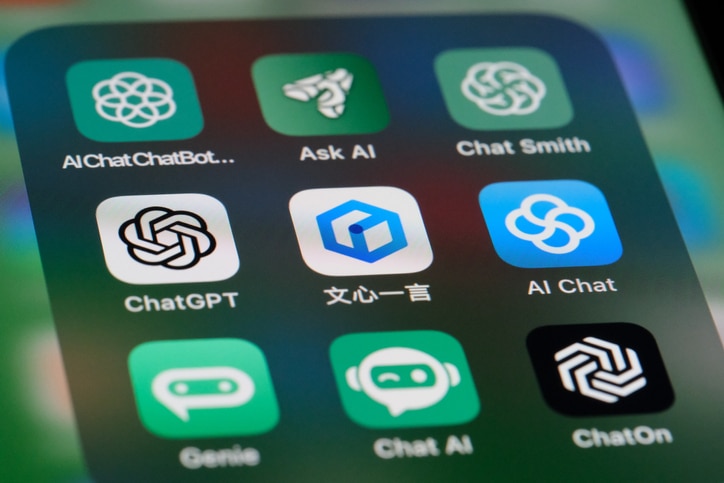A group of current and former employees from leading AI companies like OpenAI, Google DeepMind, and Anthropic has penned an open letter advocating for greater transparency and protection for individuals who voice concerns about AI’s potential risks. The letter emphasizes the role of employees in holding corporations accountable in the absence of effective government oversight. It highlights the prevalence of broad confidentiality agreements that hinder individuals from speaking out about potential issues, perpetuating a culture of silence within the industry.
The letter’s publication follows a recent Vox investigation exposing OpenAI’s attempt to silence departing employees through aggressive non-disparagement agreements. These agreements forced individuals to choose between signing or risking the loss of their vested equity in the company. While OpenAI CEO Sam Altman expressed regret over this provision and claimed its removal from recent exit documentation, questions remain regarding its ongoing applicability.
Among the signatories are former OpenAI employees Jacob Hinton, William Saunders, and Daniel Kokotajlo. Kokotajlo, who resigned from the company citing concerns about its approach to building artificial general intelligence (AGI), underscores the urgency of responsible AI development and the need for greater transparency within the industry.
The letter, endorsed by prominent AI experts such as Geoffrey Hinton, Yoshua Bengio, and Stuart Russell, raises concerns about the lack of robust government oversight and the profit-driven motives incentivizing tech giants’ investments in AI. The authors caution against the unchecked advancement of powerful AI systems, warning of potential repercussions such as misinformation propagation, exacerbation of societal inequalities, and loss of human control over autonomous systems, potentially leading to human extinction.
Kokotajlo emphasizes the importance of researchers’ voices in warning the public about AI risks, emphasizing the dangers of stifling dissenting opinions amidst a lack of external regulation.
OpenAI, Google, and Anthropic have yet to issue responses to requests for comment. However, an OpenAI spokesperson reiterated the company’s commitment to providing safe and capable AI systems, emphasizing its engagement with various stakeholders to address potential risks.
The signatories advocate for AI companies to adhere to four fundamental principles: refraining from retaliating against employees who voice safety concerns, establishing an anonymous whistleblowing system to report risks to the public and regulators, fostering a culture of open criticism, and avoiding restrictive non-disparagement or non-disclosure agreements that inhibit employees from speaking out.
This initiative unfolds amidst heightened scrutiny of OpenAI’s practices, including the dissolution of its “superalignment” safety team and the departure of key figures critical of the company’s prioritization of product development over safety considerations.
A consortium comprising both current and former employees from major AI companies like OpenAI, Google DeepMind, and Anthropic has recently penned an open letter advocating for greater transparency and protection for individuals who express concerns regarding the potential risks associated with artificial intelligence (AI). This collective effort underscores the critical role employees play in holding corporations accountable, particularly in instances where there is a notable absence of robust government oversight within the industry. The letter sheds light on the prevalent issue of broad confidentiality agreements that effectively muzzle individuals, stifling their ability to speak out about potential risks and fostering a culture of secrecy and silence within the AI sector.
The genesis of this letter lies in a recent investigation by Vox, which revealed OpenAI’s attempt to silence departing employees through the imposition of aggressive non-disparagement agreements. These agreements, which presented departing individuals with a stark choice between signing or risking the loss of their vested equity in the company, sparked considerable controversy. While OpenAI CEO Sam Altman expressed regret over this provision and claimed its removal from recent exit documentation, questions remain regarding its ongoing applicability and potential repercussions.
Noteworthy among the signatories are former OpenAI employees Jacob Hinton, William Saunders, and Daniel Kokotajlo. Kokotajlo, in particular, resigned from the company citing profound concerns about its approach to building artificial general intelligence (AGI), a term denoting AI systems that match or surpass human intelligence. His departure underscores the pressing need for responsible AI development practices and the imperative of fostering greater transparency and accountability within the industry.
The letter, backed by prominent AI luminaries such as Geoffrey Hinton, Yoshua Bengio, and Stuart Russell, raises profound concerns about the lack of robust government oversight and the profit-driven motives incentivizing tech giants’ investments in AI technologies. The authors caution against the unchecked advancement of powerful AI systems, warning of potentially dire consequences such as the propagation of misinformation, exacerbation of societal inequalities, and the loss of human control over autonomous systems, which could ultimately lead to the catastrophic scenario of human extinction.
If you like the article please follow on THE UBJ.
